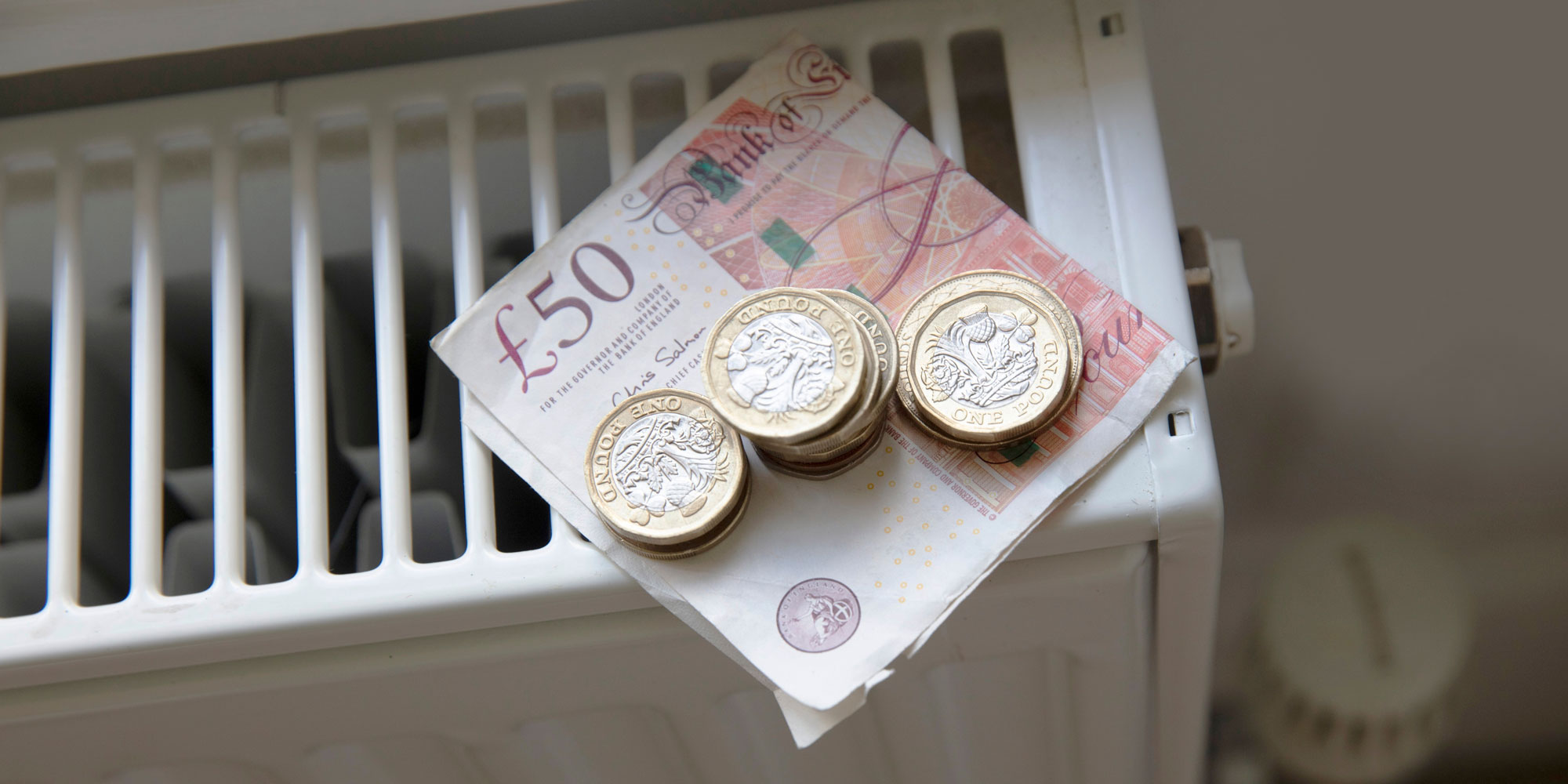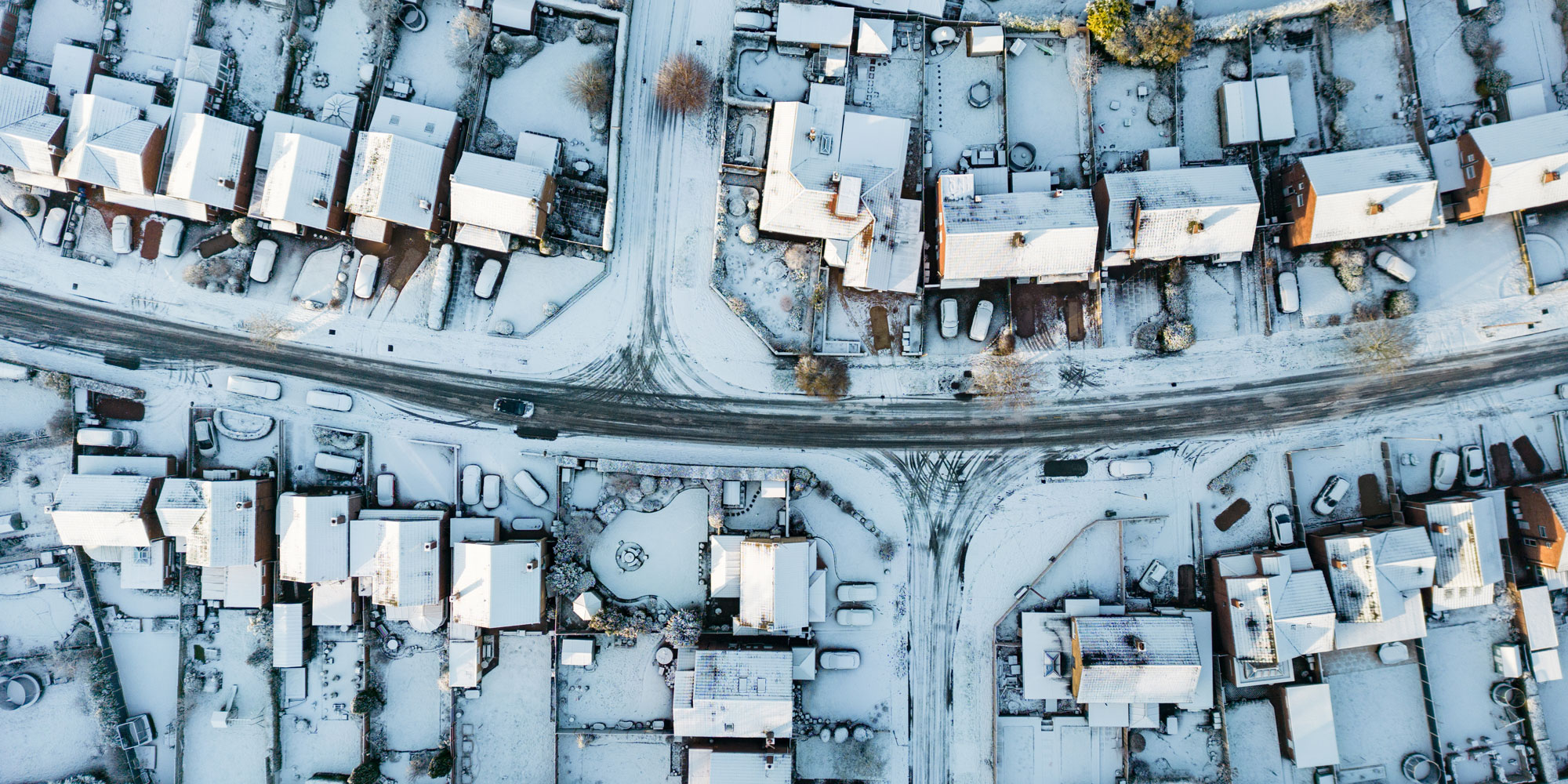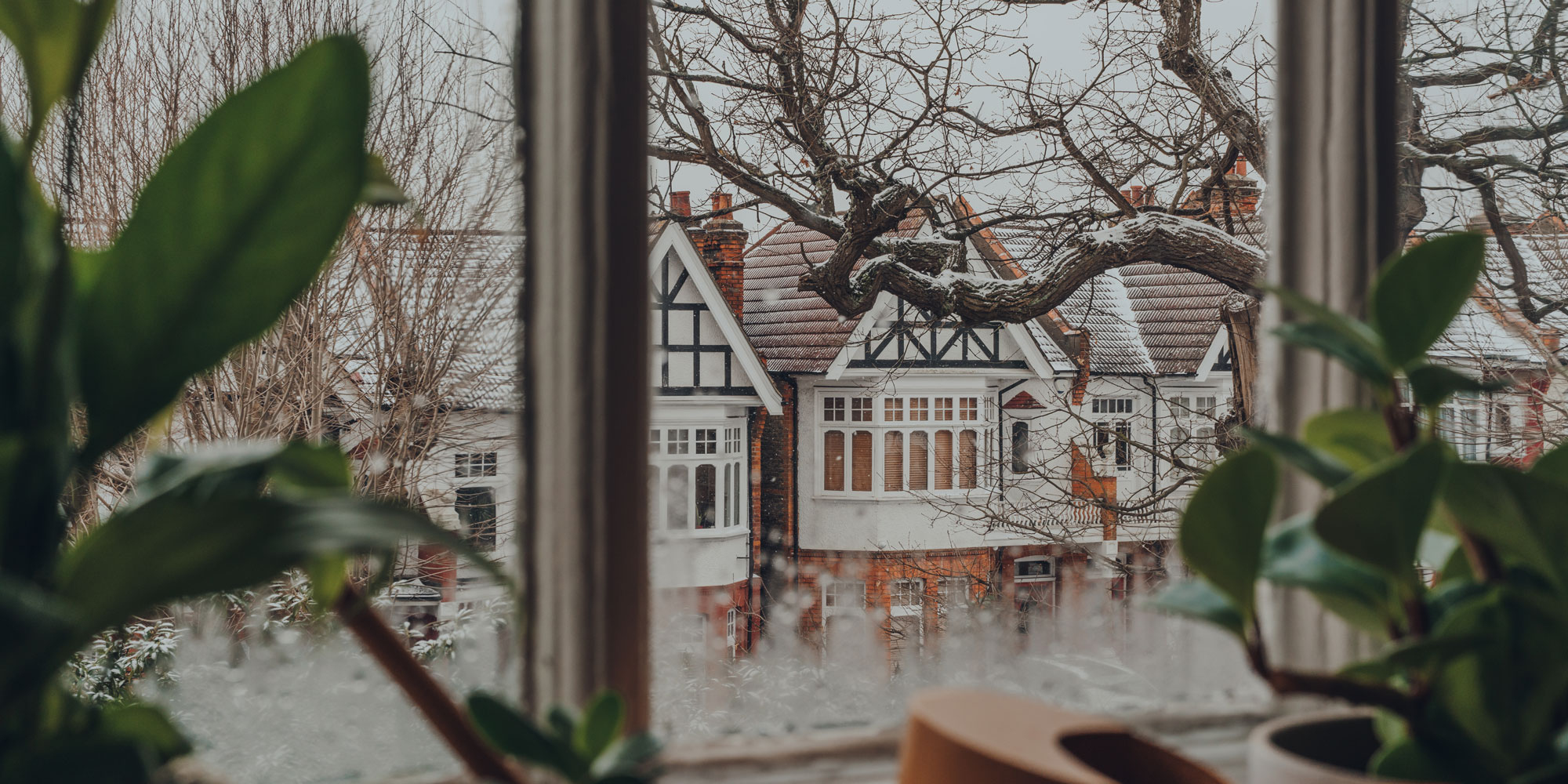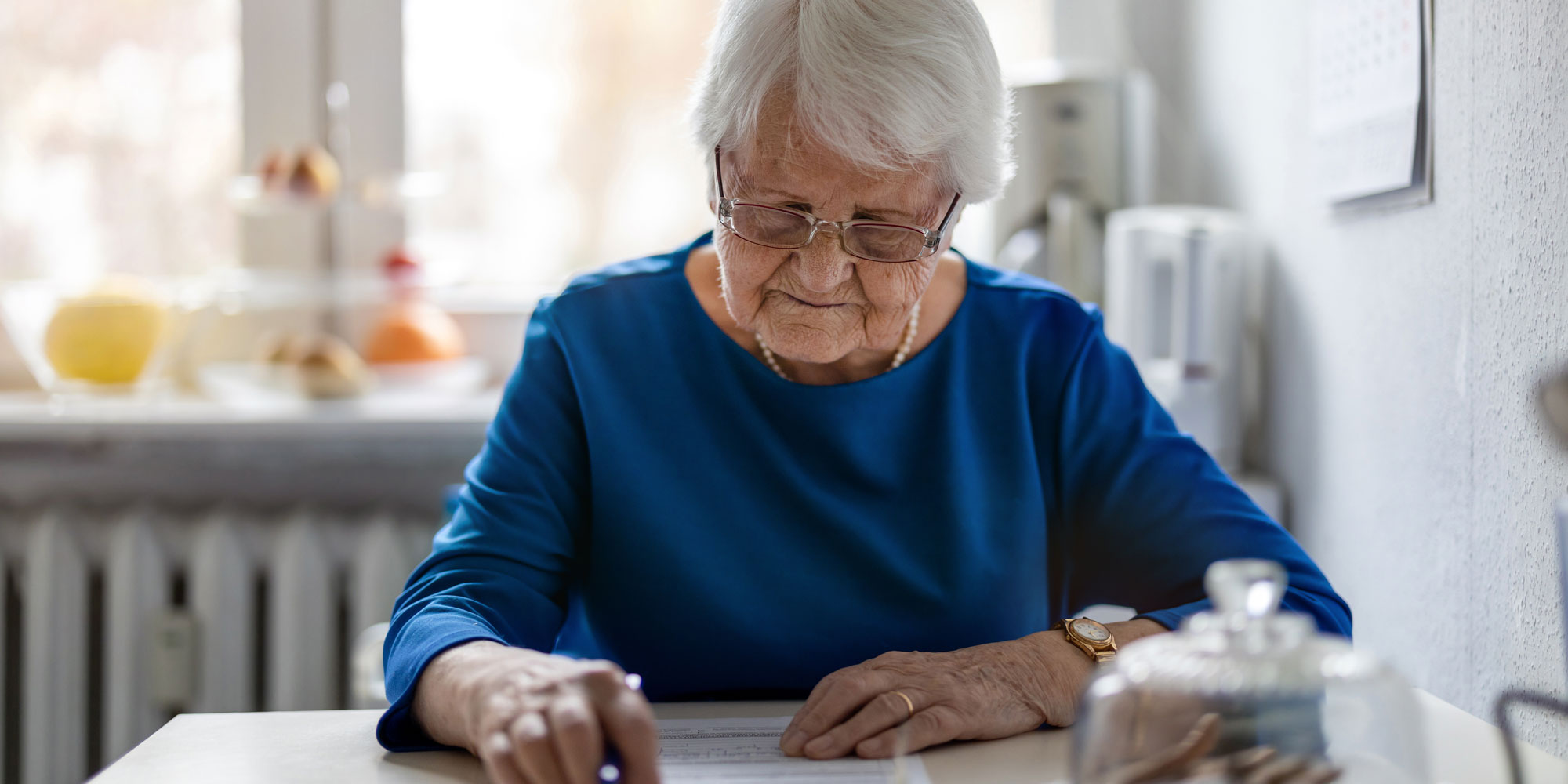By clicking a retailer link you consent to third-party cookies that track your onward journey. This enables W? to receive an affiliate commission if you make a purchase, which supports our mission to be the UK's consumer champion.
Cold Weather Payment, Winter Fuel Payment and Fuel Direct

There are several government schemes that can help you pay your energy bills, particularly in the colder winter months.
These include:
- The Winter Fuel Payment for pensioners - available to people in England, Wales and Northern Ireland who have a taxable income of £35,000 or less for winter 2025-26.
- The Cold Weather Payment - available to people in England, Wales and Northern Ireland who are getting certain benefits or Support for Mortgage Interest.
- The Winter Heating Payment - available to eligible people living in Scotland.
Here, we round up the available schemes, what you could get for the 2025-26 tax year, and how to find out if you qualify for them.
You may also qualify for a £150 annual credit to your electricity account through the Warm Home Discount. See the eligibility criteria in our guide to the Warm Home Discount.
Cold Weather Payment

Cold Weather Payments are made to some households in England and Wales to help pay for extra heating when it's very cold.
If you live in Scotland you can't get Cold Weather Payments. But you might be able to get a £59.75 Winter Heating Payment instead (scroll down to find out more).
If you qualify, Cold Weather Payments are paid when the average temperature where you live is recorded as (or forecast to be) 0°C or below for seven days in a row.
You'll get £25 for each seven-day period with those temperatures between 1 November and 31 March.
Who is eligible for Cold Weather Payments?
You may be eligible for Cold Weather Payments f you receive any of the following:
- Pension Credit
- Income Support
- Income-based Jobseeker's Allowance
- Income-related Employment and Support Allowance
- Universal Credit
- Support for Mortgage Interest.
You'll usually get Cold Weather Payments if you get Pension Credit. If you get other benefits listed above, you might also need to meet other criteria, for example having a child under five, a disabled child, a disability or pensioner premium.
If you meet the criteria, you'll usually get Cold Weather Payments automatically - you don't need to apply.
Tell Jobcentre Plus if you have a baby or a child under five comes to live with you, and you get Income Support, income-based Jobseeker’s Allowance (JSA) or income-related Employment and Support Allowance (ESA). You may not receive Cold Weather Payments otherwise.
The gov.uk website has a tool to find out if your area is due to receive the Cold Weather Payment. It's open from 1 November each year. If it is, and you qualify, you’ll be paid it automatically into the same bank account that receives your benefits, within 14 days of the cold spell.
Winter Fuel Payment

The Winter Fuel payment is a £100-£300 annual payment to help pay for your gas or electric heating in winter. It's tax-free and also known as the Winter Fuel Allowance.
The eligibility criteria for the Winter Fuel Payment changed for winter 2024-25. Previously, most people over State Pension age were eligible. For winter 2024-25, it was restricted to those on income-related benefits, such as Pension Credit.
From winter 2025-26, the payment is available to a wider group, using a fixed income threshold to determine eligibility.
To qualify in 2025, the following must apply:
- You were born before 22 September 1959
- You live in England or Wales
- You have a taxable income of £35,000 or less.
Taxable income includes the state pension, workplace or personal pensions, earnings, and most interest from savings.
If you live in Northern Ireland, you might be eligible for a Winter Fuel Payment from the Northern Ireland Executive. Eligibility rules are the same as for England and Wales.
If you live in Scotland, you can't get a Winter Fuel Payment, but you might be eligible for the Pension Age Winter Heating payment.
Anyone who meets the eligibility requirements will receive the Winter Fuel Payment, and you don't need to apply for it.
How much Winter Fuel Payment will I get?
Here's how much Winter Fuel Payment you'll get if you qualify.
Sole applicants
If you live alone or no one you live with is eligible for the Winter Fuel Payment:
- £200 if you were born between 22 September 1945 and 21 September 1959
- £300 if you were born before 22 September 1945
Joint applicants
If you live with someone else who also qualifies, the amount you receive will depend on whether you and/or your partner claim any of:
- Pension Credit
- Universal Credit
- Income-based Jobseeker’s Allowance (JSA
- Income-related Employment and Support Allowance (ESA)
- Income Support
If you jointly claim the benefits or you get any of the benefits but not jointly, you'll get:
- £200 if both of you were born between 22 September 1945 and 21 September 1959
- £300 if one or both of you were born before 22 September 1945.
If you don't get any of the benefits, you'll get £100-£200 depending on when you and the person you live with were born.
If you live with someone else who qualifies, only one of you will get the Winter Fuel Payment.
When will I receive the Winter Fuel Payment?
If you are entitled to the Winter Fuel Payment, you should get a letter in October or November saying how much you'll get. Most people are paid in November or December. If you haven't been paid by the end of January, contact the Winter Fuel Payment Centre.
You won't be eligible for the Winter Fuel Payment if you:
- Live outside of England and Wales (different schemes are available in Northern Ireland and Scotland)
- Were in prison for the whole week of 15-21 September 2025
- Received free treatment in hospital for the whole week of 15 to 21 September 2025 and the year before that
- Need permission to enter the UK and your granted leave says that you cannot claim public funds
- Lived in a care home for the whole time from 23 June 2025 or earlier and get certain benefits.
If you receive the Winter Fuel Payment, and your taxable income for the 2025-26 tax year exceeds the £35,000 threshold, HMRC will take the payment back via your tax code the following year, or through your self-assessment tax return.
Read more about benefits and allowances for people who are over the state pension age in our guide to benefits for older people.
Winter Heating Payment
The Winter Heating Payment gives £59.75 this winter to qualifying households in Scotland to help with the costs of heating.
The eligibility requirements are the same as the Cold Weather Payment in England and Wales.
But it doesn't matter how cold it gets. You'll get the payment automatically if you qualify.
You can expect to get your payment between December and February. You'll get a letter from Social Security Scotland before it makes the payment.
If you think you're eligible but don't get a payment, send Social Security Scotland a request.
Pension Age Winter Heating Payment
The Pension Age Winter Heating Payment helps people of state pension age in Scotland pay their heating bills. If you're eligible, you could automatically get a payment of between £101.70 and £305.10.
To be eligible for the 2025 payment, you must earn £35,000 or less a year, have been born on, or before, 21 September 1959, and have lived in Scotland on at least the last day of the week from Monday 15 September to Sunday 21 September 2025.
As with the Winter Fuel Payment in England and Wales, certain criteria may render you ineligible, and if you earn more than £35,000 for the tax year, HMRC will reclaim your Pension Age Winter Heating Payment.
Fuel Direct
You can pay off debt to organisations, including your energy supplier, directly from your benefits payments if you’re having difficulties keeping up with your bills.
These are sometimes called ‘third-party deductions’. The benefits you can use are:
- Universal Credit
- Income-based Jobseeker’s Allowance
- Income-related Employment Support Allowance
- Income Support
- Pension Credit.
Fuel Direct payments take a certain amount from your benefits each time they're paid until you've paid off the debt.
The amount you’ll pay through deductions directly from your benefits depends on the benefits you're receiving. If you get Universal Credit, 5% if of it will be deducted from your benefit payment to go towards your energy debt. If you receive other benefits, £4.55 a week will be deducted.
While you're paying off debt through Fuel Direct, you can have extra money deducted to pay your ongoing bills.
You'll need to contact your energy supplier to set this up. It needs your consent. You should agree an amount with it that covers your bills.
You can stop making payments for ongoing bills this way at any time, or change the amount you pay.
There's other help available if you're struggling to pay your energy bills.
Warm Homes Plan
Low or zero-interest loans to install low-carbon technology were announced by government in January 2026, as part of its Warm Homes Plan.
All households will be able to apply and eligible technologies will include:
- solar panels
- heat pumps (both ground-source and air-source, including air-to-air)
- storage batteries.
Details on how to apply for the loans are expected to be released later this year.
Low-income homes will be able to apply for full financial support to install appropriate energy upgrades for their homes.
Here's what we know so far about the Warm Homes Plan.
Other energy efficiency schemes

You might be able to get financial help for energy-saving home improvements through schemes that run in your area.
These can cover a range of energy efficiency measures including:
- Loft insulation costs and savings
- Cavity wall insulation
- New boilers and heating controls
- Boiler repairs
- Window replacement (in Northern Ireland).
An assessor will usually visit your home to determine what's needed.
To qualify, you'll often need to receive certain benefits and must either own your property or rent it privately. If you're renting, you need the owner's permission to do the work.
If you're not sure what efficiency rating your home has, check its energy performance certificate. Alternatively, ask your landlord or housing association.
For more information on these schemes, and full eligibility criteria, contact the scheme operator in your part of the UK:
- Gov.uk (UK)
- Home Energy Scotland (Scotland): 0808 808 2282
- Nest (Wales): 0808 808 2244
- NIDirect (Northern Ireland): 0300 200 7874
Read more about ways to cut your energy bills and find out how to insulate your home.
Extra benefits
Depending on your personal and financial situation, you could be eligible for benefits to help you keep up with your bills and household expenses too. Check if you qualify for financial help through the benefits system using the gov.uk website.
Reduce energy bills
Use our free Home Energy Planning Service to build a personalised plan to make your home more energy efficient!
Start your plan